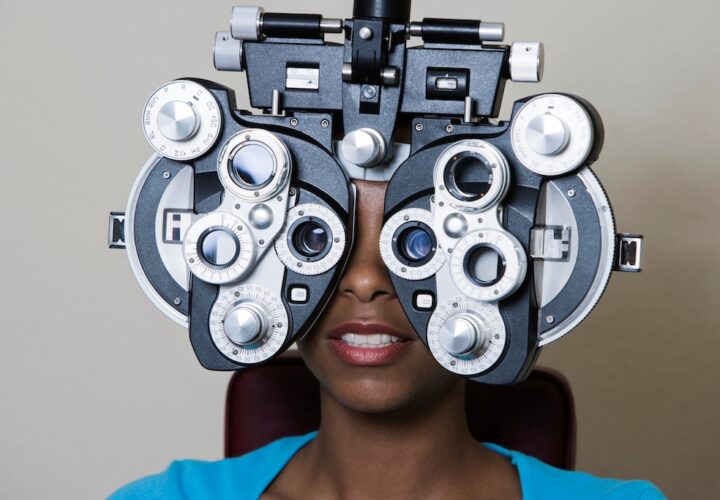Dr. Daniel C. Potts is a neurologist sharing what patients and care partners should know about navigating the healthcare system after watching his father grapple with an Alzheimer’s disease diagnosis in 2002. This is part two of a three-part series on what to expect with Alzheimer’s prognosis. Read part one here.
Disclosing a Diagnosis
If you’re being evaluated for cognitive impairment, you have the right to expect your healthcare providers to be compassionate, to interact directly with you and not just with your care partner, to discuss test findings and to deliver the diagnosis with empathy and professionalism. Nearly half of all people who have Alzheimer’s disease were not told of their diagnosis by their health care provider, according to a report released in 2015 by the Alzheimer’s Association. In contrast, people with diseases such as breast cancer or lung cancer were told by doctors 93 percent of the time.
The same report found that people with late-stage Alzheimer’s were more likely to be told than those in the early stages. Considering that the early stages are when patients can make important decisions about their Alzheimer’s prognosis, like deciding on an advance directive or creating a will or power of attorney, not revealing a diagnosis can be harmful to a patient’s plan of care. Patients have a right to know and have that conversation with their provider, and stigma is lessened when healthcare providers take the lead in bringing the disease out of the shadows.
Some might speculate that revealing a diagnosis might cause more trouble than it’s worth. Care partners often assume the diagnosis or a discussion about the condition will be depressing to their loved ones, but studies show that this generally is not the case. From the standpoint of a neurologist, it is frustrating when family members want nothing said around those who have dementia for fear of upsetting them. Physicians should encourage forthright discussion about the diagnosis and its implications. In subsequent clinic visits, this type of honest dialogue should continue, which will build trust and foster more efficient person-centered care.
When To Seek a Specialist
Many primary care providers can make a reasonably accurate diagnosis of the presence and type of dementia, can start treatment and offer resources for education and support. That said, many feel uncomfortable making the diagnosis and starting treatment without confirmation from a specialist (i.e. neurologist, geriatric psychiatrist, geriatrician, etc.). Patients’ families also may wish to seek specialists’ opinions. Once a referral is made, the specialist often assumes primary management of the person with dementia. Primary care providers should continue to manage concurrent conditions such as hypertension, diabetes, obstructive sleep apnea, hyperlipidemia (also known as high cholesterol), obesity, depression, etc., as these can adversely affect cognition if not controlled.
Medications
If Alzheimer’s, Lewy body disease or mixed dementia (more than one type of dementia) is the suspected diagnosis, often providers will recommend starting a medication such as Donepezil (often sold under the brand Aricept), Rivastigmine (sold under the brand Exelon), Galantamine (sold under the brand Razadyne) and/or Memantine (sold under the brand Namenda). These medications are not cures by any means, and do not reverse the underlying pathology—they won’t affect the changes in the brain, like plaque build-up, that we see in Alzheimer’s. But they have been proven to have some beneficial effects on cognition. Ask your doctor about potential side effects, and check with the pharmacist about drug-to-drug interactions before taking any medications. In cases of frontotemporal dementia, these meds are usually avoided in favor of antidepressants, because frontotemporal dementia patients experience changes in the brain that affect personality and mood.
Antidepressants also may be prescribed for persons living with other types of dementia who are experiencing depression or anxiety. Medications which can be used to treat seizures are sometimes recommended to help control agitation, though non-drug behavioral interventions aimed at identifying unmet needs or unidentified discomfort are preferred. Sometimes, a patient who is acting aggressive or agitated may be doing so because they’re in pain from a urinary tract infection, for example. Antipsychotic medications generally should be avoided, due to side effect potential, a greater likelihood of falls and lack of proven benefit.
A Diagnosis Has Been Made. What Can You Expect Regarding Alzheimer’s Prognosis?
After the diagnosis has been made, physicians and their staff should provide education for persons living with dementia and their care partners, so that they will not feel overwhelmed and “in the dark” after receiving such news. A primary goal should be helping people to live well with dementia and understand their Alzheimer’s prognosis. Living well involves caring for the whole person—mind, body and spirit—nurturing relationships, independence and creativity, promoting safety and planning for a future in which the wishes of persons living with dementia will be honored.
Given time constraints that most doctors are facing, most of the education will need to be via lists of websites, books, local, regional and national organizations, etc. Major organizations like the Alzheimer’s Association, Alzheimer’s Foundation of America, UsAgainstAlzheimer’s, American Academy of Neurology, National Institutes of Health, National Institute on Aging, Dementia Action Alliance, Dementia Alliance International and Dementia Friendly America have educational and support resources online, in print and available by phone to give you an idea of Alzheimer’s prognosis and the course of the disease. Healthcare providers and/or their staff should direct you to local resources such as elder law attorneys, adult daycare services, Area Agencies on Aging, assisted living facilities and support groups.



